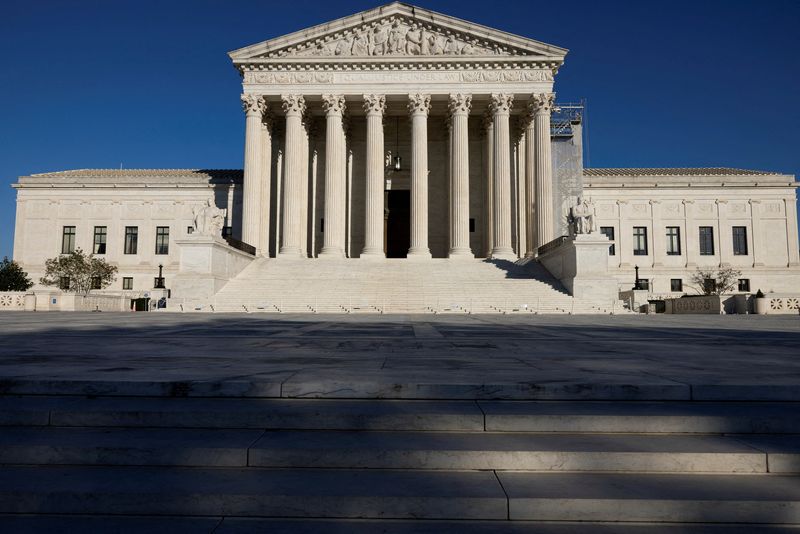By John Kruzel
WASHINGTON (Reuters) – The U.S. Supreme Court declined on Monday to hear a bid by Sunoco and other oil companies to scuttle a lawsuit by Honolulu accusing them of misleading the public for decades about the dangers of climate change induced by the burning of fossil fuels.
The justices turned away an appeal by the oil companies of a decision by Hawaii’s top court allowing the suit, which alleged violations of state law, to proceed. Other defendants in the lawsuit include Exxon Mobil (NYSE:XOM), BP (NYSE:BP), Shell (LON:SHEL), ConocoPhillips (NYSE:COP), BHP Group (NYSE:BHP), Marathon Petroleum (NYSE:MPC) and Chevron (NYSE:CVX).
The suit was filed in 2020 by the city and county of Honolulu and the Honolulu Board of Water Supply, a semi-autonomous city agency. The plaintiffs said misleading statements made by the companies about the impact of their fossil fuel products paved the way for property and infrastructure damage caused by human-induced climate change.
The plaintiffs have sought unspecified monetary damages. Honolulu is located on Hawaii’s Oahu island.
The lawsuit said that heat waves linked to climate change have stressed the city’s electrical grid, and that a wastewater treatment plant would need to be retrofitted against sea level rise at a cost of hundreds of millions of dollars, among other harms.
Ben Sullivan, an official at the City and County of Honolulu’s Office of Climate Change, Sustainability and Resiliency, hailed the Supreme Court’s action.
“This is a significant day for the people of Honolulu and the rule of law. This landmark decision upholds our right to enforce Hawaii laws in Hawaii courts, ensuring the protection of Hawaii taxpayers and communities from the immense costs and consequences of the climate crisis caused by the defendants’ misconduct,” Sullivan said.
Honolulu is among various U.S. jurisdictions to have filed suits seeking monetary damages from companies that extract, produce, distribute or sell fossil fuels, arguing that their activities contribute to emissions of carbon dioxide and other so-called greenhouse gases linked to climate change.
“Defendants have known for more than 50 years that greenhouse gas pollution from their fossil fuel products would have a significant adverse impact on the Earth’s climate and sea levels,” the Honolulu lawsuit stated.
Instead of warning the public about the known consequences of using their products or working to minimize associated damage, the companies “concealed the dangers, promoted false and misleading information, sought to undermine public support for greenhouse gas regulation, and engaged in massive campaigns to promote the ever-increasing use of their products at ever-greater volumes,” the lawsuit added.
Among other consequences of this conduct, the lawsuit said, the average sea level will rise substantially along the Honolulu Pacific coastline, causing flooding, erosion and beach loss, and extreme weather affecting the region will become more frequent.
The companies urged a trial judge to dismiss the suit, arguing that the claims made under state law were preempted, or blocked, by federal law because those Hawaii statutes sought to regulate interstate emissions or commerce, powers reserved for the federal government.
Hawaii Circuit Court Judge Jeffrey Crabtree denied that request. The Hawaii Supreme Court in October 2023 upheld the judge’s ruling, prompting the oil companies to appeal to the justices.
The defendants had tried to move the case to federal court but were rebuffed by the U.S. Supreme Court in April 2023.
(This story has been refiled to fix a typo in paragraph 1)

